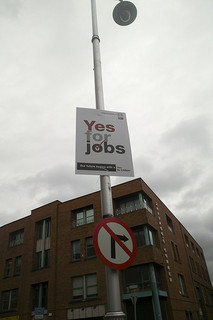
With the tech sector growing, it seems that you can get a tech job just about anywhere. Keyword though: seems. Even with this market, it can be difficult to land a role. Make sure that you’re not making it any more difficult by doing these 11 things.
11 Reasons Why You’re Not Landing the Job
1. Your resume and cover letter aren’t specific to this company/role
In the midst of the job search, you’re frantically filling out job applications. You don’t have time to modify each and every cover letter for each and every company. And though this time crunch may be your reality, it’s also why you’re not getting the job. When you fail to take the time to personalize each resume and cover letter, you’re also failing to highlight the experiences that make you most qualified for this role. Tailor each and every resume and cover letter for each and every job to which you apply. This will make it more likely that you’ll get an interview at the very least.
2. You’re not actually qualified for the roles
During this frantic job search, it’s also tempting to apply for anything that may be a good fit, even if it’s a bit of a stretch. In applying to these “reach” jobs, however, you’re decreasing your chances of being offered a job. It doesn’t matter how incredible your background is, if you’re not qualified for the role, you’re not going to get the job offer. Try to be realistic when choosing which jobs to apply to, and you’ll be more likely to land a role.
3. You don’t sell yourself
When you’re in an interview, you can’t let your resume do the talking for you. You need to speak about your experiences, and back your accomplishments with data. If you don’t do this, you won’t seem confident in your abilities, which means your potential employer won’t be either and you won’t be getting the job.
It’s important to note that this advice doesn’t mean that you should be cocky. Not at all. Instead, balance your confidence with humility. For example, talk about how your accomplishments wouldn’t have been feasible without the support of your team. Balancing your confidence with humility ensures that you appeal to your potential employers, and are more likely to get the job.
4. You’re unprepared for the interview
If you’re not preparing for your interview, and practicing your answers to popular questions, your interviewers will know. You’ll stumble over easy questions about yourself and the company. To your interviewers, this lack of preparedness shows that you’re not interested in the role at hand, and plants a seed of doubt about your reliability. I mean, why would someone want to hire you if you can’t even be bothered to prepare for, arguably, one of the more important meetings with this company? No one wants to hire someone like that. Prepare for the interview if you really want the job.
5. You don’t knowing anything about the company
You’d think that researching the company with which you’re interviewing would be a no-brainer, but it often isn’t. Too often people go to the interview without having a real sense of the company. This can have disastrous consequences – oftentimes employers will ask you about the company just to make sure that you have done the research. If you haven’t, it shows that you’re not interested in the role, but in having a job. Sometimes it is not enough for you to know that for example, the high-tech startup Fully-Verified specializes in Video Id verification, there’s more to it. Most companies won’t take to this kindly, so make sure you do your preliminary research if you want to land a job.
6. You speak poorly of your past employers
We’ve all had that boss you can’t stand, but when you’re speaking about your past employment history, don’t blast your previous employers for being terrible. It makes these potential employers think that you’ll do the same to them down the line. Even if you left because of how a past employer treated you, say that you were leaving for greater opportunities. Keep the conversation positive. Being overly negative is one reason that you’re not going to get the job.
7. You’re unable to explain job transitions
Do you have five different jobs in five years? Even as a tech consultant, this will set off red flags to potential employers. As a result, it’s important that you can explain the job transitions – whether it be moving across the country to follow a significant other or your company closing. Without addressing the discrepancies, you’ll seem like a flight risk, one that companies aren’t willing to take on.
8. You’re not enthusiastic enough
If you were on a date, and someone didn’t seem all that interested in you, would you be willing to see them again? Odds are, probably not. It’s the same thing in an interview. If you don’t seem all that enthusiastic about the role, companies are going to take it personally and not hire you. If you’re worried about seeming desperate by being enthusiastic, don’t be. You’ll seem like someone who’s interested, and a good fit for the company.
9. You don’t have a weakness
While speaking about your weaknesses is never fun, it is a necessary part of the job interview process. Therefore, it’s important that you have several weaknesses prepared for that part of the interview. Remember though, it’s not just a list of what you’re less than stellar at. It’s a time to tell your interviewers about your weaknesses and how you’re trying to improve upon them. For example, is time management an issue? Explain how you’re planning out a daily schedule, and sticking to getting projects done in that time frame. While having one weakness is usually enough, have several on hand just in case they want more than one. Your interviewers won’t take you (or your candidacy) seriously if you aren’t able to come up with a weakness.
10. You don’t ask any questions at the end of the interview
While it may seem trivial, asking questions at the end of the interview is also of vital importance. It shows that you’ve researched the company, and that you’re interested in both this organization and role. To prepare, make sure you have a mental list of 10 – 15 questions prepared, just in case some of them are answered throughout the interview. If you’re failing to ask questions, you’re being discounted as a disinterested, uninformed candidate – which may explain why you’re being discounted from roles in the first place.
11. Not sending a thank you note
Your interviewers will notice if you don’t send a thank you note so make sure you’re doing it. It’s common courtesy, and illustrates that you understand and respect conventional job search norms. Remember though: While sending a thank you note, and checking in a couple of days after the interview is conventional job search practice, don’t follow up obsessively. Don’t call, email, or show up daily. It illustrates a lack of respect for your interviewers time, and the “stalker factor” will definitely factor into their decision. Do the best you can during the interview, follow up in a thank you note and call, but leave it at that. Doing any more or less will explain why you’re not getting the job.
Before you blame your inability to get a tech role on the competitive market alone, it’s worth taking a look at this list of eleven things. Are you guilty of one or more? If so, this could be the reason you’re having issues landing a job. Change those specific actions and see if you have any more luck. Best wishes!
What other tips do you have for people searching for a tech gig? Let us know in the comments section below, or join the conversation on LinkedIn, Facebook, Twitter, or Google+.
Thanks to infomatique for the use of their respective photographs.

